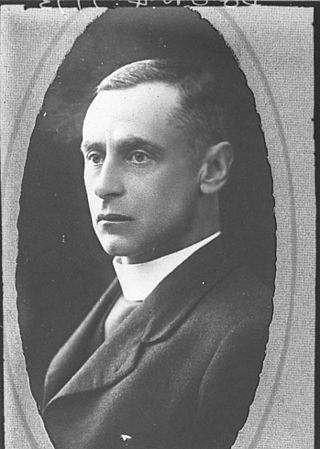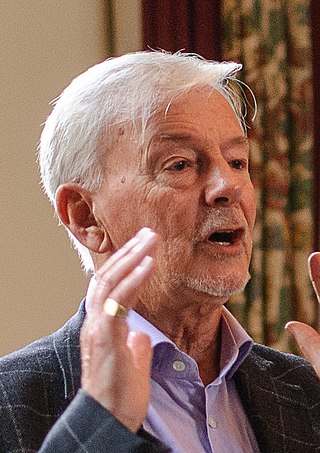Related Research Articles

The relationship between religion and science involves discussions that interconnect the study of the natural world, history, philosophy, and theology. Even though the ancient and medieval worlds did not have conceptions resembling the modern understandings of "science" or of "religion", certain elements of modern ideas on the subject recur throughout history. The pair-structured phrases "religion and science" and "science and religion" first emerged in the literature during the 19th century. This coincided with the refining of "science" and of "religion" as distinct concepts in the preceding few centuries—partly due to professionalization of the sciences, the Protestant Reformation, colonization, and globalization. Since then the relationship between science and religion has been characterized in terms of "conflict", "harmony", "complexity", and "mutual independence", among others.

Seyyed Hossein Nasr is an Iranian philosopher, theologian and Islamic scholar. He is University Professor of Islamic studies at George Washington University.
The Gifford Lectures are an annual series of lectures which were established in 1887 by the will of Adam Gifford, Lord Gifford. Their purpose is to "promote and diffuse the study of natural theology in the widest sense of the term – in other words, the knowledge of God." A Gifford lectures appointment is one of the most prestigious honours in Scottish academia. The lectures are given at four Scottish universities: University of St Andrews, University of Glasgow, University of Aberdeen and University of Edinburgh.

Joseph Martin McCabe was an English writer and speaker on freethought, after having been a Roman Catholic priest earlier in his life. He was "one of the great mouthpieces of freethought in England". Becoming a critic of the Catholic Church, McCabe joined groups such as the Rationalist Association and the National Secular Society. He criticised Christianity from a rationalist perspective, but also was involved in the South Place Ethical Society which grew out of dissenting Protestantism and was a precursor of modern secular humanism.
The Thinker's Library was a series of 140 small hardcover books published between 1929 and 1951 for the Rationalist Press Association by Watts & Co., London, a company founded by the brothers Charles and John Watts.
The Romanes Lecture is a prestigious free public lecture given annually at the Sheldonian Theatre, Oxford, England.

Stanley Martin Hauerwas is an American theologian, ethicist, and public intellectual. Hauerwas originally taught at the University of Notre Dame before moving to Duke University. Hauerwas was a longtime professor at Duke University, serving as the Gilbert T. Rowe Professor of Theological Ethics at Duke Divinity School with a joint appointment at the Duke University School of Law. In the fall of 2014, he also assumed a chair in theological ethics at the University of Aberdeen. Hauerwas is considered by many to be one of the world's most influential living theologians and was named "America's Best Theologian" by Time magazine in 2001. He was also the first American theologian to deliver the prestigious Gifford Lectures at the University of St. Andrews in Scotland in over forty years. His work is frequently read and debated by scholars in fields outside of religion or ethics, such as political philosophy, sociology, history, and literary theory. Hauerwas has achieved notability outside of academia as a public intellectual, even appearing on The Oprah Winfrey Show.

The Bampton Lectures at the University of Oxford, England, were founded by a bequest of John Bampton. They have taken place since 1780.

The Hulsean Lectures were established from an endowment made by John Hulse to the University of Cambridge in 1790. At present, they consist of a series of four to eight lectures given by a university graduate on some branch of Christian theology.
The Hibbert Lectures are an annual series of non-sectarian lectures on theological issues. They are sponsored by the Hibbert Trust, which was founded in 1847 by the Unitarian Robert Hibbert with a goal to uphold "the unfettered exercise of private judgement in matters of religion.". In recent years the lectures have been broadcast by the BBC.

Keith Ward is an English philosopher, and theologian. He is a fellow of the British Academy and a priest of the Church of England. He was a canon of Christ Church, Oxford, until 2003. Comparative theology and the relationship between science and religion are two of his main topics of interest.
The Dwight H. Terry Lectureship, also known as the Terry Lectures, was established at Yale University in 1905 by a gift from Dwight H. Terry of Bridgeport, Connecticut. Its purpose is to engage both scholars and the public in a consideration of religion from a humanitarian point of view, in the light of modern science and philosophy. The subject matter has historically been similar to that of the Gifford Lectures in Scotland, and several lecturers have participated in both series.

Peter D. Harrison is an Australian Laureate Fellow and director of the Institute for Advanced Studies in the Humanities at the University of Queensland.
Sigmund Freud's views on religion are described in several of his books and essays. Freud considered God as a phantasy, based on the infantile need for a dominant father figure, with religion as a necessity in the development of early civilization to help restrain our violent impulses, that can now be discarded in favor of science and reason.

Christian culture generally includes all the cultural practices which have developed around the religion of Christianity. There are variations in the application of Christian beliefs in different cultures and traditions.
Michael Stafford Northcott is Professor Emeritus of Ethics at the University of Edinburgh, Scotland. He is best known for his contributions to environmental theology and ethics.

Western civilization describes the development of human civilization beginning in Ancient Greece, and generally spreading westwards. However, Western civilization in its more strictly defined sphere traces its roots back to Rome and the Western Mediterranean. It can be strongly associated with nations linked to the former Western Roman Empire and with Medieval Western Christendom.
Charles Adolphus Row (1816–1896) was an English Church of England clergyman and moral philosopher.

Most scientific and technical innovations prior to the scientific revolution were achieved by societies organized by religious traditions. Ancient pagan, Islamic, and Christian scholars pioneered individual elements of the scientific method. Historically, Christianity has been and still is a patron of sciences. It has been prolific in the foundation of schools, universities and hospitals, and many Christian clergy have been active in the sciences, and have made significant contributions to the development of science.
Ada Byron Bampton Tremaine was an American philanthropist best known for the bequest that established the Bampton Lectures in America as well as an endowed chair within the Department of Religion at Columbia University. That chair is currently held by Courtney Bender. Her predecessor, Robert Somerville, upon his retirement on 1 July 2020 was given the honorary title of Tremaine Professor Emeritus of Religion.
References
- ↑ "Latest News and Information on Bampton Lectures (Columbia University)". Informationonparrots.com. Archived from the original on 2016-03-03. Retrieved 2011-05-13.
- ↑ "Bampton Lectures in America « Institute for Religion, Culture, and Public Life". Ircpl.org. Archived from the original on 19 May 2011. Retrieved 2011-05-13.
- ↑ "40th Bampton Lecture in America with His Eminence, Cardinal Péter Erdő « The Institute for Social and Economic Research and Policy". iserp.columbia.edu. Archived from the original on 2018-06-23. Retrieved 2021-12-02.
